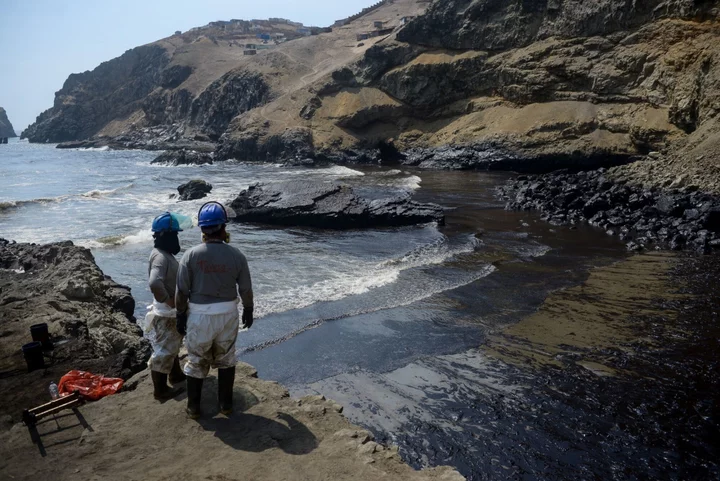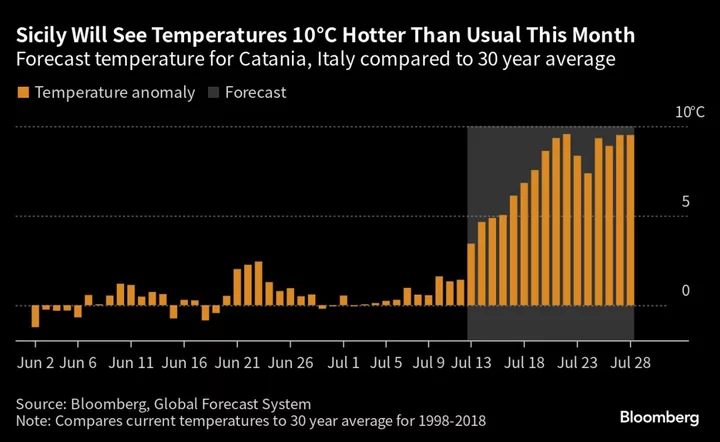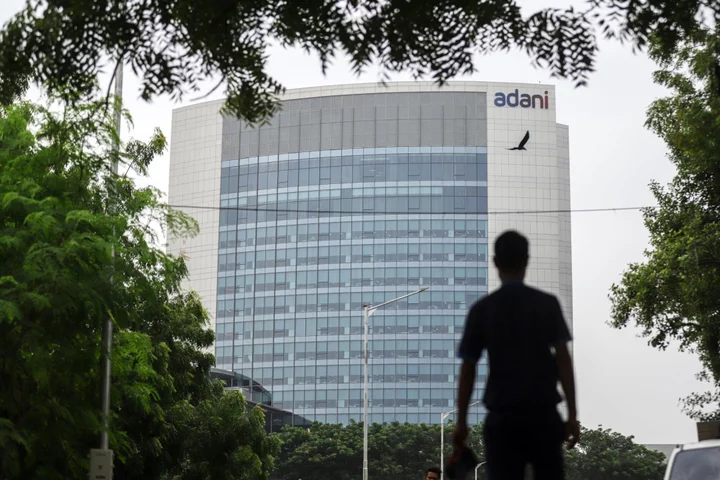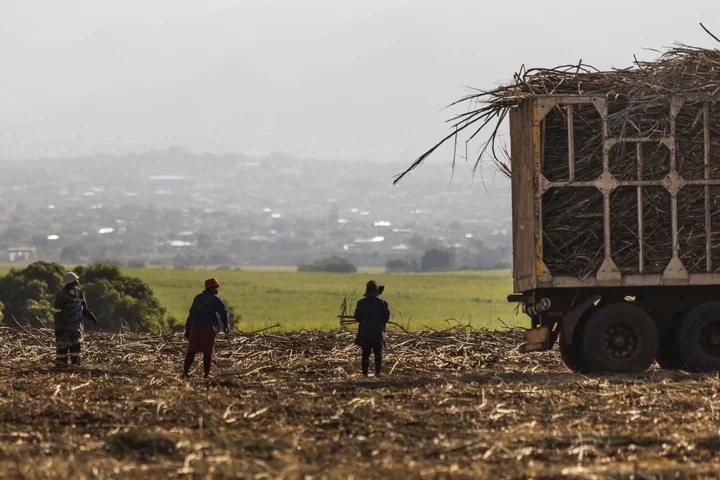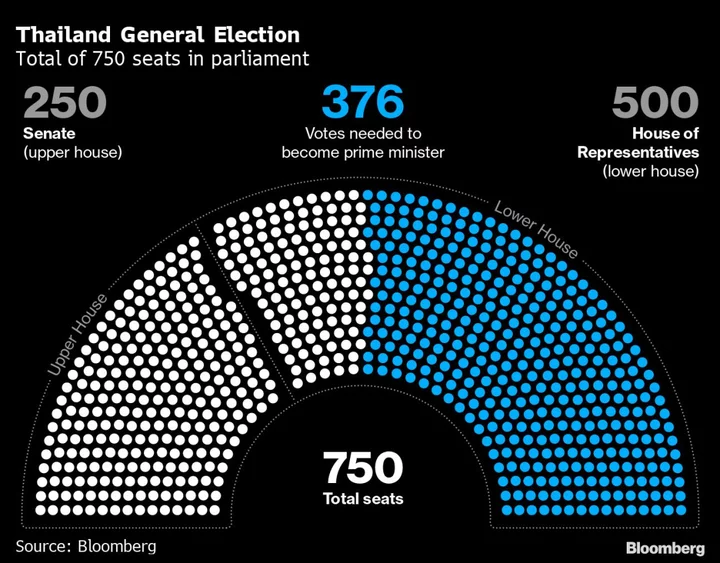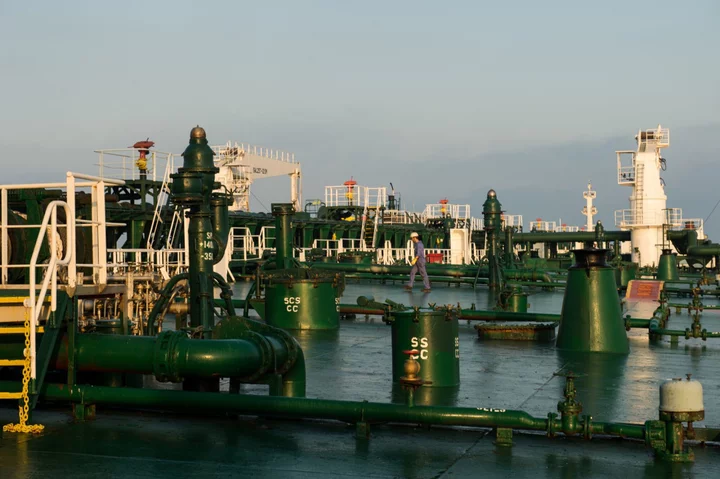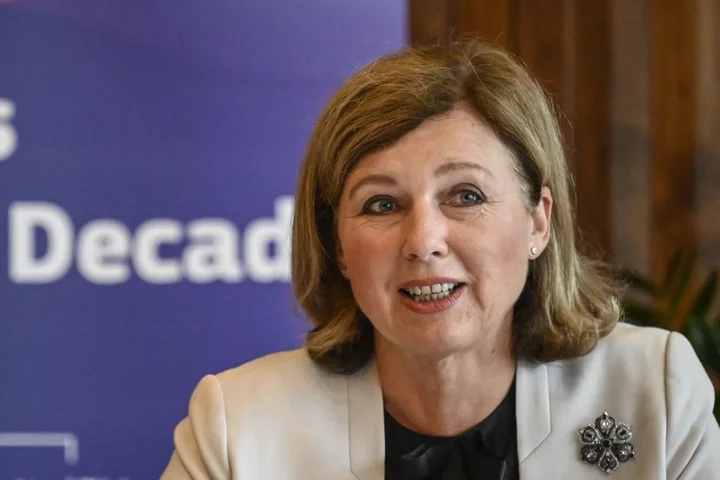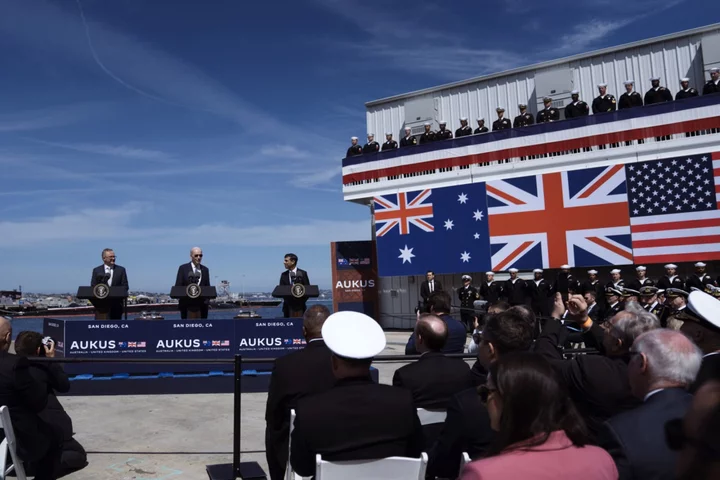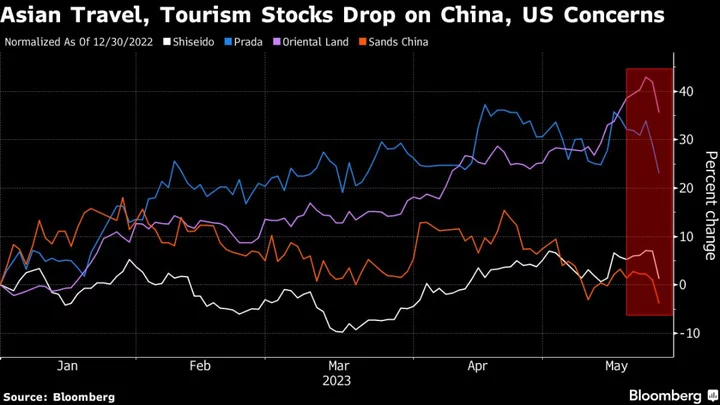(Bloomberg) --
The biggest achievement at the annual United Nations climate summit last year was committing to create a fund that would compensate the poorest for destruction wrought by global warming. One of the questions at the upcoming COP28 summit will be how to add money to this new loss-and-damage fund.
If history is any guide, it’s going to be a hard problem to solve. In 2009, rich countries promised to provide $100 billion annually to poor countries to fund projects that reduce emissions and avoid climate impacts. By 2020, the deadline to reach that sum, the amount transferred that year stood at just $83 billion. And most of that total came in the form of loans rather than grants, according to an Oxfam report published this week.
Avinash Persaud, a Barbados economist who is the island nation’s special envoy on investment and financial services, says a creative solution is gaining traction. It’s rooted in a more successful history of wealth transfers from emitters to victims. He wants to impose a small fee on the world’s oil buyers to fund loss-and-damage payments for poor countries ravaged by floods, fires, storms and heat waves.
The proposal is modeled on the International Oil Pollution Compensation Funds, which date back to 1971 and continue to function today. The funds work by charging a very small fee to more than 120 member countries for every barrel of oil they import only when the pots need to be replenished. Most of the time the levy is collected directly from oil companies that unload the fuel onshore. If there ever is an oil spill anywhere in the world, IOPC funds can be made available for clean-up costs of up to $250 million (with some countries paying extra for protection of up to $1 billion).
“The world has been waiting decades for a loss-and-damage fund,” says Persaud. By contrast the IOPC mechanism came about “in just few years.”
The IOPC funds were created after the Liberian tanker Torrey Canyon struck a rock in 1967 on its way to the UK. That oil spill caused pollution both on British and French shores that required an expensive clean-up operation. In more than 50 years of existence, IOPC has dealt with more than 150 incidents and paid out £750 million ($930 million). And the number of annual oil spills requiring IOPC funds to intervene has been falling for decades.
Persaud’s trial balloon is part of the latest attempt to reset the conversation on climate finance under the leadership of Barbados Prime Minister Mia Mottley. She launched her Bridgetown Initiative last year to overhaul the global financial architecture to address growing inequality, climate change, and loss of biodiversity. At a summit in Paris later this month, alongside French President Emmanuel Macron, Mottley hopes to convince the richest countries to support a series of initiatives aimed at reforming existing multilateral development banks (MDBs), such as the World Bank and the International Monetary Fund, to address today’s biggest problems.
Some of those demands are laid down in an unreleased document titled “Bridgetown 2.0,” which has been reviewed by Bloomberg Green. It calls on the IMF to create $100 billion worth of currency exchange guarantees, which it claims could mobilize $1.5 trillion in spending on projects that reduce carbon emissions. It also aims to boost lending from MDBs, which the proposal says could unlock $500 billion to spend on UN-backed Sustainable Development Goals. Another $100 billion per year for climate loss and damage will be agreed on through “taxes, charges or other sources,” according to the document.
Listen on the Zero podcast to climate-finance experts explain why Africa is unable to exploit its renewable-energy potential
All of the loss-and-damage money should be given out in the form of grants, Persaud argues, and there’s not a lot of money to do that right now. The total amount that rich countries give away to pay for all overseas development aid stands at about $200 billion annually.
Despite Persaud’s optimism that support is growing for a global fee on oil imports to address climate damages, the man who oversaw the IOPC for decades is less convinced. “If there is political will for such an idea, it can be done,” says Måns Jacobsson, who served as the director of the IOPC funds from 1985 to 2006. “But I doubt there is political will.”
While oil companies have to pay the levy, it’s up to governments to mandate those contributions, he says. The push could work “if governments are willing to put more burden on their oil industry,” Måns says. But that’s unlikely because, although these are not taxpayer funds, “it’s still money going out of the country.”
Countries that import the most oil will have to make the biggest contribution to the fund. It would mean a country like India, which is vulnerable to climate change but much less historically responsible for the problem than the US, would have to pay far more than an energy-exporting nation. (It’s also worth noting that the US isn’t a member of the IOPC funds; it created its own response mechanism in the Oil Pollution Act after the major Exxon Valdez oil spill of 1989.)
Persaud says a fee on oil imports won’t be the only way to fill the loss-and-damage fund. Another idea, floated by the Marshall Islands in 2021, is for the International Maritime Organisation (IMO) to levy a $100 per ton of carbon dioxide emitted by the world’s shipping fleet — a policy that the agency has faced growing pressure to adopt to tackle climate change.
The climate problem is now clearly a financial problem. As impacts grow, the sums of money invested in solutions will balloon and so will the calls for compensation. That’s already clear from the first day of statements from the countries meeting in Bonn, Germany this week, in a prelude to setting the agenda for COP28 in Dubai in late November.
Akshat Rathi writes the Zero newsletter, which examines the world’s race to cut emissions. You can email him with feedback. His book Climate Capitalism will be published later this year.
(Updates with comment fromMåns in 11th paragraph.)

